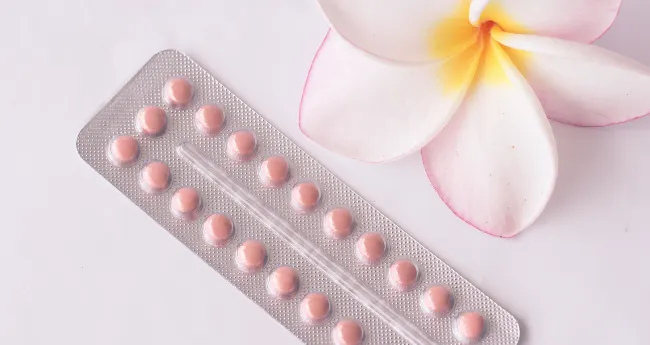What is hormonal imbalance: The ultimate guide for a woman

When there is too little or a lot of any hormone in the blood, a hormonal imbalance occurs. The symptoms can vary from weight fluctuations to acne and primarily depend on which hormone is out of balance.
What is hormonal imbalance?
The glands in your endocrine system produce certain chemicals known as hormones. These hormones travel to various organs via the bloodstream and are responsible for delivering messages to the organs telling them the functions they need to do and when to do it.
Most primary bodily processes are regulated by hormones. So, when there’s a hormonal imbalance, it can affect many important bodily functions such as:
- Blood pressure
- Metabolism
- Blood sugar
- Growth
- Reproductive cycles
- General growth and development
- Mood and stress levels
Hormonal imbalance in women
Females typically experience changes in their hormonal cycle naturally during these stages:
- Puberty
- Pregnancy
- Breastfeeding
- Perimenopause or menopause.
Women experience imbalances in hormones such as estrogen and progesterone. And the most common consequence of hormonal imbalance is polycystic ovary syndrome (PCOS).
Hormonal imbalance in women: Symptoms
Symptoms of a hormonal imbalance in women include:
1. Irregular periods -
This includes missed periods, stopped periods, or frequent periods. Generally, the average menstrual cycle length varies between 21 to 35 days. If yours doesn’t arrive around the same time every month, or you skip some months, it might mean that certain hormones (estrogen and progesterone) are too high or low.
There could be many reasons why it happens. But irregular periods could also be a symptom of health issues like polycystic ovary syndrome (PCOS). Thus, it’s recommended to always stay prepared by having a stock of your trusted Always pads. The Always Platinum Ultra Thin pads are suitable since they are made with supreme quality material and are designed for maximum safety and up to 100% comfortable protection. Its combination of innovative micro-cushions and an ultra-absorbent core instantly locks in the wetness.
Those who prefer using tampons, can explore the range of superior quality tampons from Always’ Tampax. The Tampax Compak tampons come with a smooth, compact applicator for discretion, and a built-in protective skirt to help prevent leakage for up to 8 hours. They are available in various absorbency variants to best suit your flow needs. This will help you feel clean and free to do whatever you like.

2. Excessive hair or hirsutism -
Hirsutism is when coarse or coloured hair grows on the face and body of some women. This happens when levels of androgen run high. It can overstimulate the hair follicles, leading to more hair growth than a woman would normally experience.
3. Acne -
A hormonal imbalance may explain why you have acne on the face, chest, or upper back. Hormonal changes trigger acne and can worsen skin concerns. High levels of androgens like testosterone are associated with acne problems.
4. Changes in weight -
Hormonal imbalance in women can lead to excessive weight gain and difficulty in losing weight. You could end up with extra belly fat with high levels of estrogen, cortisol, and insulin and low levels of thyroxine. When the thyroid hormone produces more hormones than your body requires, you’ll notice you’ve lost weight suddenly. This condition is known as hyperthyroidism.
5. Hair loss -
When levels of hormones such as estrogen decline, other hormones in your body, like testosterone, start to have a bigger impact. The result is thinning hair or hair loss. You could notice this during pregnancy, menopause, or after you start birth control pills.
Other symptoms include:
- Hyperpigmentation - especially along neck creases, in the groin, and underneath breasts
- Skin tags
- Vaginal dryness
- Vaginal atrophy
- Pain during intercourse
- Loss of libido
- Night sweats
- Headaches.
What causes hormonal imbalances?
It is normal for your hormone levels to naturally rise and fall throughout your life on a daily basis. These changes can become dramatic during certain phases of your life such as puberty, pregnancy and menopause, resulting in more hormonal changes and fluctuations.
Although, there could be other reasons for your hormone levels to fluctuate at unexpected times. Some of the most common causes of hormonal imbalance are:
- Stress
- Certain medications
- Steroids.
The good news is that with these causes, the imbalances are more likely to be temporary and can be managed by changing your medication or managing stress.
On the other hand, chronic hormone-related conditions can have several different possible causes. These include:
- Tumors or other growths
- Damage or injury to an endocrine gland
- Autoimmune conditions.

Hormonal imbalance treatment
When it comes to hormonal imbalance, the treatment options include:
1. Hormonal birth control -
Certain medications containing forms of estrogen and progesterone can help regulate irregular menstrual cycles and symptoms. There are many types of birth control available such as a pill, ring, patch, shot, or intrauterine device (IUD). It is strongly recommended that you consult a doctor before you begin with any form of hormonal birth control pills.
2. Vaginal estrogen -
Those who experience vaginal dryness due to changes in estrogen levels can apply ointments that include estrogen directly to vaginal tissues to reduce the symptoms. Estrogen tablets and rings are also available and help relieve vaginal dryness.
3. Medicines that replace hormones -
There are some medications available that temporarily reduce severe symptoms associated with menopause, such as hot flashes or night sweats.
4. Anti-androgen medications -
These medications obstruct the predominately male hormone, androgen, and can help limit severe acne and excessive hair growth.

It is crucial to note that all the above medication and treatment must be administered after a thorough diagnosis and consultation with a doctor.
5. Lifestyle changes -
In the long run, making certain lifestyle changes will help you manage the symptoms of hormonal imbalances in a more effective and less invasive manner. Consider the below tips to change your lifestyle
- Maintain a moderate-to-ideal body weight.
- Start eating nutritious food by incorporating a balanced diet.
- Exercise regularly.
- Be consistent with using acne washes, rinses, and medicated creams or gels for minor to moderate acne. Ensure that you use these only after consulting a doctor.
- Avoid triggers that could lead to hot flashes such as warm weather and spicy, rich, or hot foods and drinks.
- Find ways to reduce and manage stress such as yoga or meditation.
- Restrict consumption of sugary foods and refined carbohydrates.
Takeaway
It is common for people to experience at least one or two periods of hormonal imbalance in their lifetime. Puberty, menstruation, pregnancy, menopause, and aging are all periods when hormonal imbalances are more common. However, for those who experience continual, irregular hormonal imbalances, it is important to speak to a doctor about the symptoms and form a treatment plan.
Disclaimer:
Please note the date of last review or update on all articles. No content on this site, regardless of date, should ever be used as a substitute for direct medical advice, diagnosis or treatment from your doctor or other qualified clinician. Always is committed to ensuring that all of our products meet rigorous safety standards; Always pads prioritize safety, protection and comfort of its consumers.




